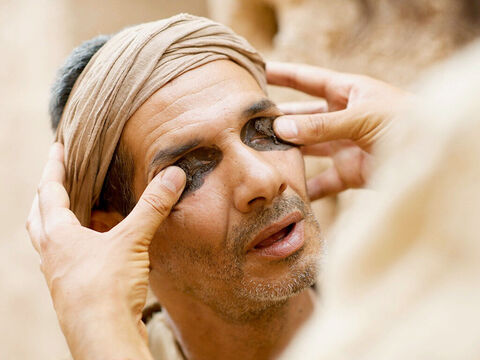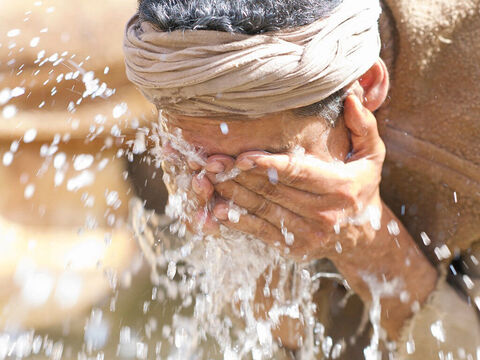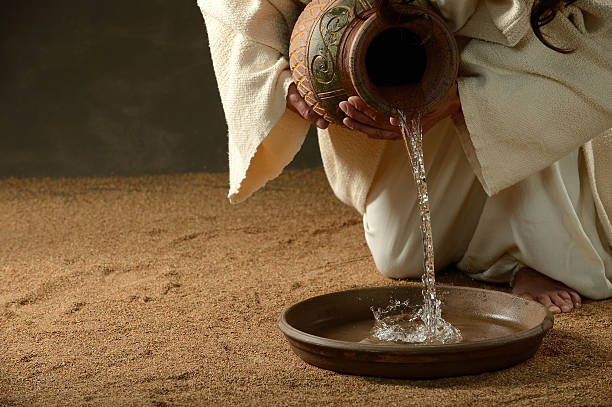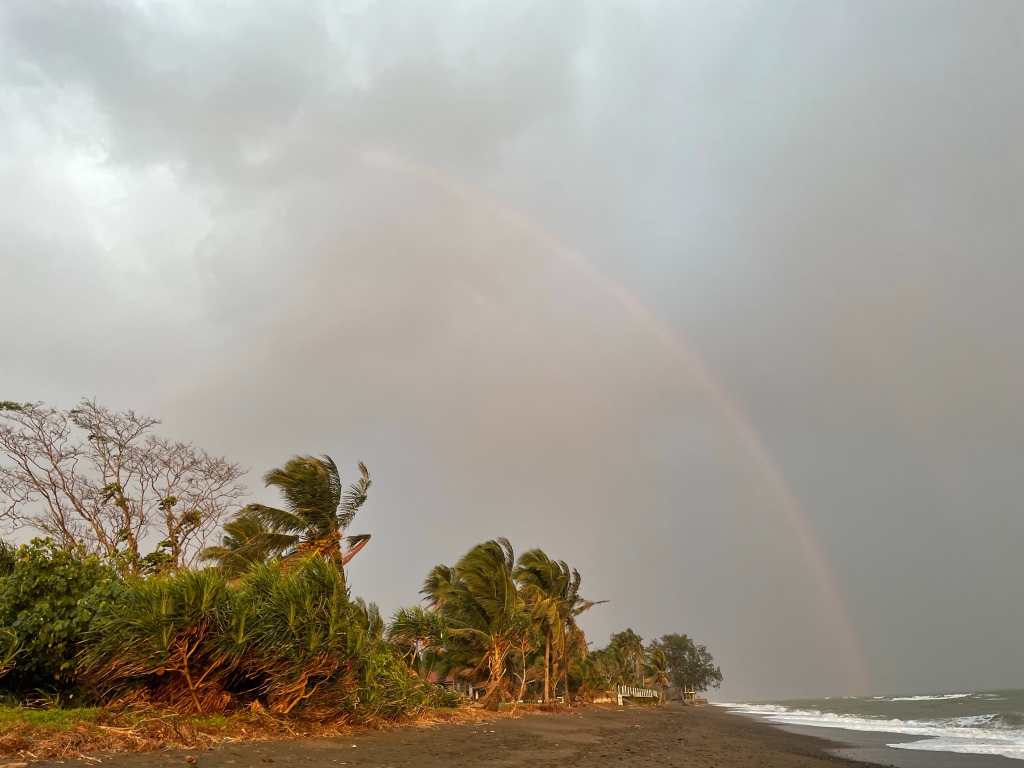323 total views
40 Shades of Lent by Fr. Nicanor F. Lalog II Fourth Sunday in Lent-A, 19 March 2023 1 Samuel 16:1, 6-7, 10-13 + Ephesians 5:8-14 + John 9:1, 6-9, 13-17,34-38

We continue to journey with Jesus and his disciples towards Jerusalem for the fulfillment of his mission and like last Sunday, we take on a short stop-over today with him in the healing of a man born blind. It is another long story in these last three weeks of Lent that we hear from the gospel by St. John, filled with so many layers of meaning about our sense of sight or seeing which we often take for granted. Many of us are misled by the world’s insistence that to see is to believe when so often, we still fail to really see persons, things, and situations.
Experience has taught us that it is not enough for us to have eyes to be able to see, that after all, what Jesus has been teaching us is most true – believe and you shall see which is what our story of his healing of a man born blind is all about.
As Jesus passed by he saw a man blind from birth. He spat on the ground and made clay with the saliva, and smeared the clay on his eyes, and said to him, “Go wash in the Pool of Siloam” – which means Sent. So he went and washed, came back able to see. His neighbors and those who had seen him earlier as a beggar said, “Isn’t this the one who used to sit and beg?” Some said, “It is,” but others said, “No, he just looks like him.” He said “I am.” They brought the one once blind to the Pharisee.
John 9: 1, 6-9, 13

Like last Sunday, let us just focus at the beginning of this long, beautiful story with many details still relevant to our own time like the apostles asking Jesus who’s to be blamed for the man being born blind, himself or his parents? Jesus clearly tells us how we must stop our blaming game and start believing and trusting God who makes himself visible even in unfortunate circumstances.
In the story of Jesus with the Samaritan woman, St. John revealed to us how God would come to our lives at “noontime” when we are hot or in the heat of our worldly pursuits including sins; in this healing of the man born blind, we are shown how God through Jesus comes to us right in our most sorry plight in life, when we are in darkness. See how so disadvantaged is that man born blind who not only had no sight but practically a nobody as he had nothing in life, begging for food and money in order to live.
And that is when Jesus Christ comes to us, when we are nothing and practically down in the dumps.

And here the story gets better. In the original Greek text, we find that “he was blind from his genesis” which has double meaning of both birth and creation. In using the term genesis, St. John is telling us that Jesus is not someone who had come to bring back the world to its original set up before the Fall of our first parents by destroying earth.
Jesus came not to destroy earth and us to start anew but to restore us to our original status of blessedness by being like us so we could be like him. Here in this instance, Jesus created a new beginning for the man when he touched the man’s eyes with mud and having him wash in the waters of Siloam which mean the “Sent One”. We are reminded how Adam the first man was formed from the dust of the earth as Ash Wednesday would always tell us at the start of Lent.
In Genesis, after forming man from dust, God breathed on Adam and he became alive.

In today’s gospel, Jesus spat on the mud and “smeared the clay on his eyes” to show the process of new creation. Spitting is Jesus infusing himself on the mud or earth that was put on the eyes of the man born blind. He then instructed the man to “Go wash in the Pool of Siloam – which means Sent” (Jn.9:7), a complete reference to him too as the Christ or the Messiah long awaited.
Clearly in this scene we find the sign of water like last Sunday, an image of the Sacrament of Baptism where we are all re-created into new persons in Jesus Christ who is himself the water who cleanses us of our sins and impurities, re-creating us into new persons with unlimited possibilities and chances in life because of our union with God.
The healing of the man born blind was his salvation, his being saved through his union with God in Jesus Christ.
The man born blind represents us all who need cleansing by Jesus Christ. Everyday, Jesus comes to us in our lowest points in life, when we are so sick and weak, when we are losing all hopes and inspiration in life, when we are lost and defeated, when we are deep into sin. Jesus gives us himself as our saving gift.
But it is just the beginning.
See how the man born blind did not have his sight right away with Jesus putting mud on his eyes; it happened after obeying the Lord’s instruction to wash himself in Siloam. We have to cooperate with Jesus Christ like the man born blind.
Recall how Jesus reminded Peter on Holy Thursday of the need for him to wash his feet in order to have “inheritance with me” (Jn.13:8). We have been washed and cleansed by Jesus in our Baptism which is perfected in our celebration of the Holy Eucharist he established on Holy Thursday. The more we immerse ourselves in Jesus in the Eucharist, the more we are cleansed, the more we have faith in him, enabling us to see clearer not just have sights of things before us but its meanings in the light of Christ.
We need to go back to Jesus in the Eucharist to be washed clean, especially our eyes to be able to see clearly.

How funny if you have entirely read this story of how the people could not believe with their eyes what they saw after the man born blind was healed by Jesus. They could not agree among themselves they have to consult their authorities, the Pharisees to verify if he was really the man born blind who was healed; but, when summoned the Pharisees questioned the man, they too refused to believe him, even insulted him. The worst part of the story was when the parents of the man born blind were called to verify if he was really their son who was born blind and now can see. Unfortunately, the parents refused to vouch for him, insisting they ask him personally for he was old enough to speak.
There are times in our lives that we could be left alone standing for Jesus Christ for what is true, what is right, what is just, and what is good because it is only us who could see everything clearly like that man born blind after his healing. That is why, it is not enough to have sights only but also insight to see the meaning of things happening at present, as well as hindsight to see the meaning of the past and foresight to find its meaning in the future. We need faith in God in order to see beyond the surface and superficial, to see the deeper meaning of persons and events like what God told Samuel in anointing Jesse’s youngest son David to be Israel’s new king.
But the Lord said to Samuel: “Do not judge from his appearance or from his lofty stature, because I have rejected him. Not as man sees does God see, because man sees the appearance but the Lord looks into the heart.”
1 Samuel 16:7
To see things and events including persons, of finding Jesus working in the present moment (insight), in the past (hindsight) and the future (foresight) requires a lot of courage too to stand for Christ and his values of truth and justice, mercy and love, life and persons like that man born blind and later healed. Here we find American writer Helen Keller’s words ringing so truly, “The only thing worse than being blind is having sight but no vision.” Visionaries are people who dream with eyes wide opened, those who dare to see beyond because of their deep faith and conviction in their beliefs or whatever they held as true. Very much like our saints too who gave their lives for the sake of Jesus Christ.
Beginning this Sunday, let us heed St. Paul’s call for us to “Live as children of light”(Eph. 5:8) by following the light of Jesus Christ. Let us leave our blindness and darkness as well as shortsightedness by seeing to it we “Take no part in the fruitless works of darkness” (Eph. 5:11). Amen. Enjoy a blessed and insightful week ahead, everyone!
















